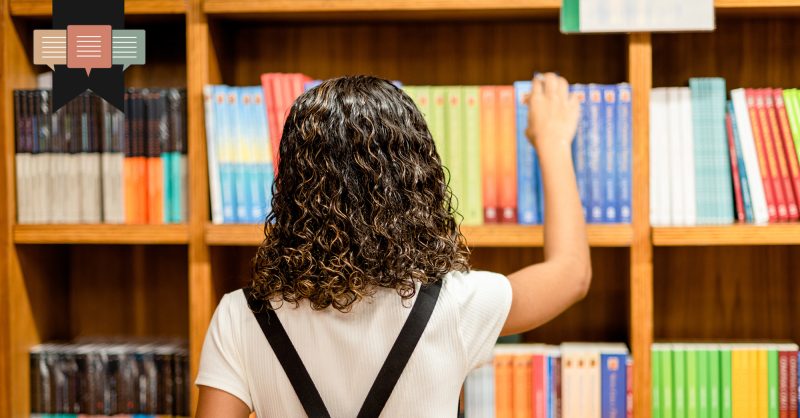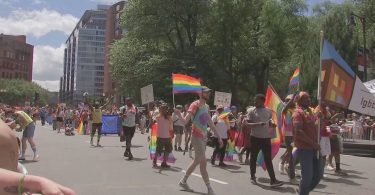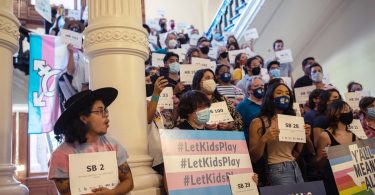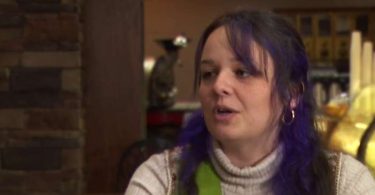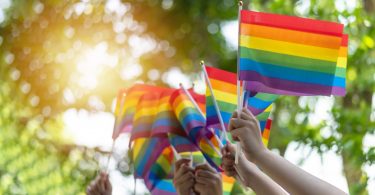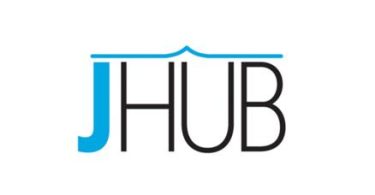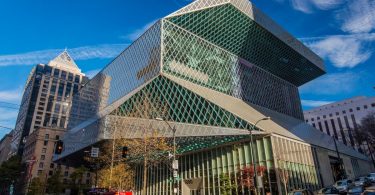The world’s largest children’s book distributor is heavily promoting extreme LGBTQ ideology, announcing a commitment to disseminate “banned books” and even providing a “censorship hotline” for those who want to get past school library restrictions.
Scholastic’s 2024 “Read With Pride” K–12 resource guide tells “educators, caregivers and advocates” that, in addition to the LGBTQ identities, “queer” kids may also identify as intersex, asexual, aromantic, pansexual, two-spirit, nonbinary, or genderqueer—and these could overlap or change at any time.
“Books and literature are never neutral,” the guide says, noting that those on board with the ideology “are disrupting the status quo” in a way that “validates” everyone. Scholastic aims to change the restrictions on books from their LGBTQIA+ collection, which are currently unavailable in many classrooms and children’s sections in libraries due to their sexualized content.
Manipulation tactics are woven into the document, with numerous stats pointing toward suicide unless children receive full affirmation from family members and friends. Not using your child’s preferred pronouns? Suicide. Not allowing your child to change his name legally? Suicide. Not fully affirming your child’s chosen identity? Suicide.
These threats bully parents and teachers into irrational acceptance of whatever new identity “feels right” for a hormonal, suffering, and vulnerable teen or preteen. We know identity is considered malleable because Scholastic includes a glossary of terms it notes are “ever-changing” but up to date as of the guide’s printing.
Some of the recommended manuscripts include Melissa, a book about a so-called transgender fourth grader; Hurricane Child, the story of a gay 12-year-old; and The Honeys, which is about a “genderfluid” kid. On Scholastic’s LGBTQIA+ section of its website, you’ll find Rick, a book for third graders about a middle schooler who joins the “Rainbow Spectrum Club,” and Llama Glamorama, a book for 4-year-olds about a gay llama. I recently saw several of these books prominently displayed in our public library’s summer book challenge for children.
Scholastic aims to change the restrictions on books from their LGBTQIA+ collection, which are currently unavailable in many classrooms and children’s sections in libraries due to their sexualized content.
The Scholastic guide includes dozens of links for organizations, books, and advocacy resources for educators who want support in bringing these books into their classrooms and libraries. By using “banned book” language, the book distributor evokes images of Nazis burning Jewish literature during the Holocaust or the Red Guards destroying capitalist books during the Chinese Cultural Revolution.
That’s not what’s happening in America today. There aren’t any actual “banned books,” making the language inaccurate. If a book were truly banned, it would be illegal to publish, sell, or even own it. That’s simply not happening in the United States. Some libraries even carry Hitler’s Mein Kampf, and you can purchase a copy at will.
Some books are “challenged” and, therefore, unavailable in public school libraries or the children’s section of public libraries. But they are freely sold on Amazon and noticeably displayed in the youth section of your local Barnes & Noble, I assure you. During Pride Month, they are on prominent display, believe me.
Consider a book like All Boys Aren’t Blue, which describes an adult raping a child, incest, and more. Why should any child have access to this at school? Progressives often say conservatives take these books “out of context” but is there really any context in which a seventh grader should be reading about rape?
What Scholastic and other “banned book” posers will not mention are the books that actually are close to being banned from major booksellers like Amazon. For example, Ryan Anderson’s When Harry Became Sally is still not sold on the largest book platform in the world. For a truly banned book, look at Mustafa Akyol’s Islam Without Extremes: A Muslim Case for Liberty. It was released in Malaysia and he was then arrested by the “religion police” for doing so. Animal Farm is still banned in Cuba today.
When material from so-called “banned books” is too “explicit” to be read aloud at a school board meeting, there’s a problem. When Joy Reid hosted Moms for Liberty’s Tiffany Justice on her show to debate this topic, MSNBC wouldn’t even display the actual text of the book in question on screen. But kids should be able to read it in the public school library?
In the meantime, I’ve not heard of any public school libraries clamoring to feature conservative-leaning titles like those in the Brave Books series or Heroes of Liberty. Would progressives be OK with their children reading about the life of Justice Clarence Thomas or the values of free-market capitalism?
And let’s not forget, parents can introduce their children to whatever kind of sexually explicit literature they want at home, with no fear of arrest.

